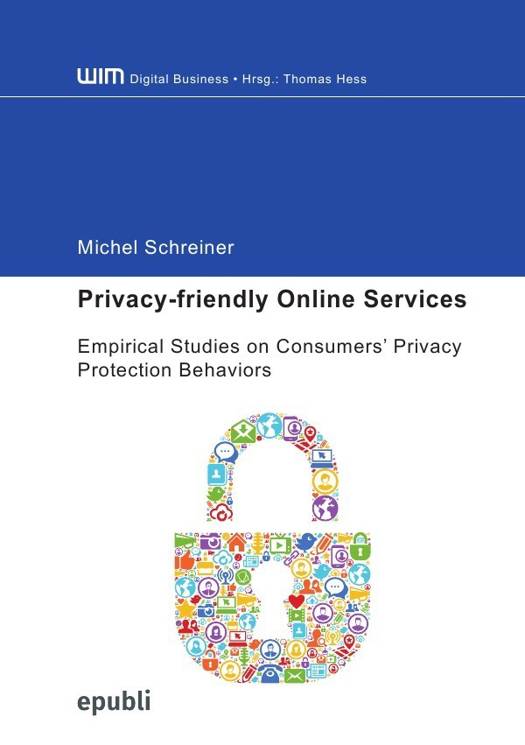
- Afhalen na 1 uur in een winkel met voorraad
- Gratis thuislevering in België vanaf € 30
- Ruim aanbod met 7 miljoen producten
- Afhalen na 1 uur in een winkel met voorraad
- Gratis thuislevering in België vanaf € 30
- Ruim aanbod met 7 miljoen producten
Zoeken
Privacy-friendly Online Services
Empirical Studies on Consumers' Privacy Protection Behaviors. Dissertationsschrift
Michel Schreiner
Paperback | Engels
€ 29,45
+ 58 punten
Omschrijving
The emergence of privacy-friendly online services that pay special attention to the protection of their users' information privacy is a recent internet phenomenon. Such services use privacy-enhancing technologies and adhere to privacy-friendly terms and conditions. Privacy-friendly online services thus differ greatly from conventional services that do not usually provide satisfactory privacy protection.In fact, numerous popular online services, like Google, Facebook, and WhatsApp, exhibit serious privacy deficiencies. Consequently, consumers of online services are becoming increasingly concerned about privacy threats. Against this background, privacy-friendly online services-such as the search engine DuckDuckGo, fee-based premium social networking sites, and the instant messaging application Threema-help consumers better protect their privacy and provide an alternative to conventional online services. But do consumers intend to adopt privacy-friendly online services? Would they be willing to pay for online services providing better privacy protection? And would they abandon a currently used online service and switch to another provider for privacy reasons?This book aims to answer these questions by providing four quantitative empirical studies that examine consumers' use of privacy-friendly online services as a specific form of privacy protection behavior. Practical management implications for the providers of online services are derived from the studies' results.
Specificaties
Betrokkenen
- Auteur(s):
- Uitgeverij:
Inhoud
- Aantal bladzijden:
- 156
- Taal:
- Engels
Eigenschappen
- Productcode (EAN):
- 9783741880421
- Uitvoering:
- Paperback
- Afmetingen:
- 148 mm x 210 mm
- Gewicht:
- 209 g

Alleen bij Standaard Boekhandel
+ 58 punten op je klantenkaart van Standaard Boekhandel
Beoordelingen
We publiceren alleen reviews die voldoen aan de voorwaarden voor reviews. Bekijk onze voorwaarden voor reviews.











